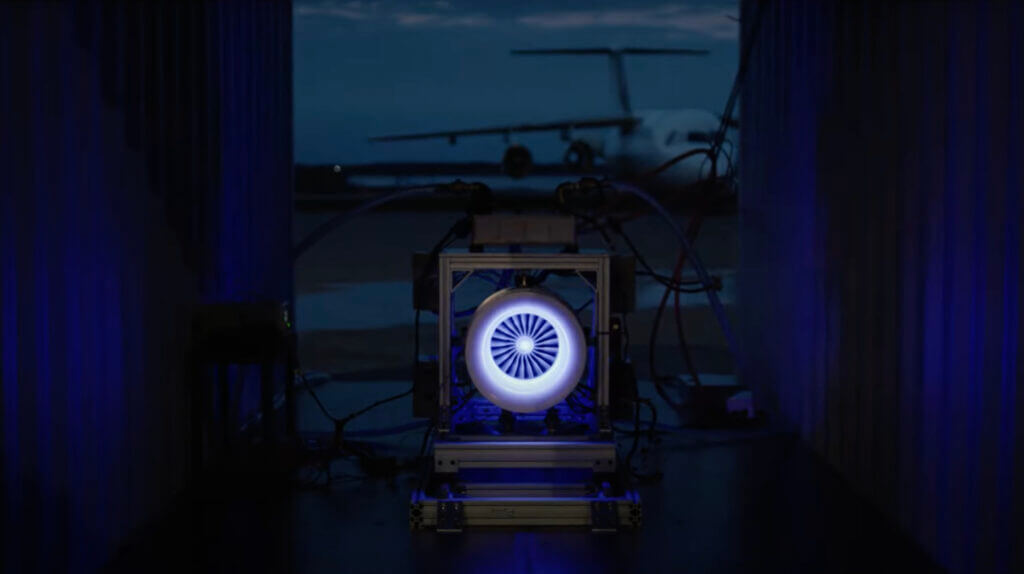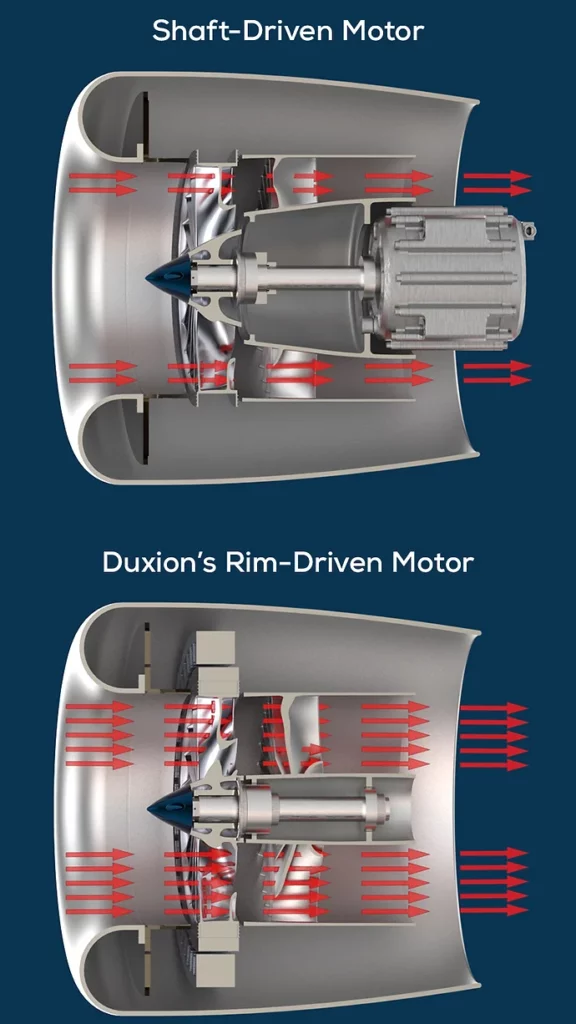Estimated reading time 4 minutes, 57 seconds.

A motor design and manufacturing company based in St. John’s, N.L., is paving the way for high-speed electric aviation.
This past May, Duxion Motors successfully completed a ground test of its patented eJet Motor — the world’s first rim-driven jet propulsion motor (as opposed to shaft-driven), which promises to match the thrust of existing jet engines but without the emissions.
The ground test took place in Summerside, P.E.I., and involved both low-speed and high-speed trials. While the achievement took place roughly five months ago, Duxion just announced it on Oct. 24.
According to the company’s chairman and CEO, Rick Pilgrim, “The eJet Motor is novel, scalable, and can be configured to serve a broad base of airframes. It represents a giant leap toward a future of sustainable aviation.”
In fact, the company says the eJet Motor “becomes more efficient as it scales to larger aircraft.”
In a nutshell, Duxion said its eJet Motor utilizes permanent magnet technology “to deliver the highest power to weight ratio” within a compact and lightweight design, facilitating the electrification of jet aircraft. The integrated ducted fan system enables hybrid cooling by adding forced convective cooling to the liquid cooling system, boosting power density and reliability.
Utilizing a minimal axle to maintain concentricity, Duxion’s technology achieves higher thrust with a smaller hub footprint, the company said. Moreover, it provides the flexibility to incorporate additional fan stages or create an adjustable duct.
While there are currently more than 30,000 jet-powered aircraft contributing to 2.5 per cent of global CO2 emissions, Duxion is positioning its eJet Motor as a solution for air operators to reduce carbon emissions and increase flight range, as the motor is “easily configured as a hybrid solution with existing jet engines or as full electric propulsion.”

Duxion says its eJet Motor also allows for lower maintenance costs, thanks to the hybridized flight cycle and lower engine operating temperatures. Moreover, the eJet Motor’s double-ended fan blades promise “ultra-quiet operation.”
The company was founded in 2017 and announced its eJet ground prototype project in April 2020. Just over a year later, in July 2021, Duxion was granted a patent for its eJet Motor. Last September, the company signed a C$500 million memorandum of understanding with Dymond Aerospace to supply 200 eJet motors for Dymond’s new fleet of 100 unmanned cargo aircraft.
Duxion said in that specific application, its eJet motors would be capable of producing more than 8,000 pounds of thrust, “similar to the thrust produced by the engines of 50-passenger CRJ100 aircraft.”
Speaking about the successful ground test of Duxion’s eJet Motor, Pilgrim stated: “We never doubted this day would come. Our confidence is rooted in the years of research, the innovation and quality of the design, and the depth of expertise and relentless passion within the Duxion team. This is only the beginning.”








